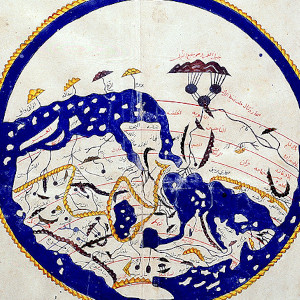Tuesdays & Thursdays, 11:00-12:20 pm
Dr. Robert Haug
For many, Medieval history is European history. It is the period between the fall of the Roman Empire and the Renaissance, roughly 500-1500, popularly misunderstood as a Dark Age. But the European Middle Ages are only a small part of the Medieval world.
In this course, we will explore the Middle Ages from a global perspective as a time of great achievement and progress. Far from a period of decline, the Middle Ages were a period of long-distance trade and human migration, the rise and fall of vast multi-ethnic empires, and the transmission of arts, sciences, cultures, and ideas across Afro-Eurasia (while similar patterns were playing out across the Americas too).
This course will be an introduction to the Global Middle Ages. Together, we will challenge popular notions of the medieval world – replacing the Dark Ages with the Bright Ages and moving beyond images of European knights and monks to encompass the entire medieval world from Europe to the Middle East, Asia, Africa, and the Americas.
Along the way, we will debate the feasibility of a Global Middle Ages as a periodization of World History. Can the Middle Ages or the term Medieval be separated from or expanded beyond its European context and still hold its meaning? From a global perspective, what makes Medieval history medieval?
This course is cross-listed with Hist 2052.
